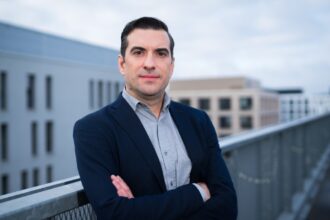Indian Prime Minister Narendra Modi embarked on a landmark journey to the United States, a diplomatic event hailed as a critical juncture in the ties between the two democracies, set to enhance their multifaceted partnership. The state visit, considered Modi’s first with full diplomatic status since his premiership in 2014, mirrors the budding relationship between Washington and New Delhi.
The significance of the event is underscored by its rarity—it marks only the third state visit during Joe Biden’s presidency and the third by an Indian leader to the US. This mirrors the dynamic connection these nations share, a far cry from their previous Cold War dynamics. Modi’s arrival in the business epicenter of New York for strategic meetings and the International Day of Yoga celebrations precedes his anticipated dialogue with President Biden in Washington.
One of the key anticipated outcomes of Modi’s US visit is the expansion of cooperation in defense and high-tech sectors. America’s willingness to share critical technologies with India, a privilege rarely extended to non-allies, indicates a significant pivot in their partnership. Modi remarked that this invitation reflects the vitality of the Indo-US partnership, and he intends to converse with leading CEOs to explore potential avenues to elevate trade, investment, and resilience in global supply chains.
Also Read: Elon Musk Set to Electrify India with Tesla and Starlink: A New Chapter Unfolds
A momentous meeting scheduled with Tesla CEO Elon Musk demonstrates India’s ambitious plans to establish a manufacturing base in the US. This move aligns with Washington’s vision of India as a valuable ally in countering China’s expanding global influence, despite skepticism regarding India’s readiness to challenge Beijing on issues such as Taiwan and its reticence to condemn Russia’s invasion of Ukraine.
Despite these geopolitical challenges, US officials maintain optimism about a stronger India capable of defending its interests and contributing to regional security in the Indo-Pacific. The highlight of this visit will be Modi’s address to a joint meeting of Congress—a unique honor for a leader once denied a US visa over human rights concerns.
Nevertheless, concerns about human rights remain a critical point of contention. Several Democrats have urged Biden to raise issues surrounding religious intolerance, press freedoms, internet access, and the targeting of civil society groups during his dialogue with Modi. Amid these discussions, Modi’s interactions with Musk, the executive chairman of Twitter—a platform that has experienced friction with Modi’s government—holds a symbolic significance.
Moreover, India’s reluctance to condemn Russia and its increase in Russian oil imports poses a diplomatic challenge. However, Modi reaffirmed India’s commitment to peace and diplomacy in an interview, indicating that the global community understands and appreciates India’s stance.
This news is based on information from the Malaymail website.















